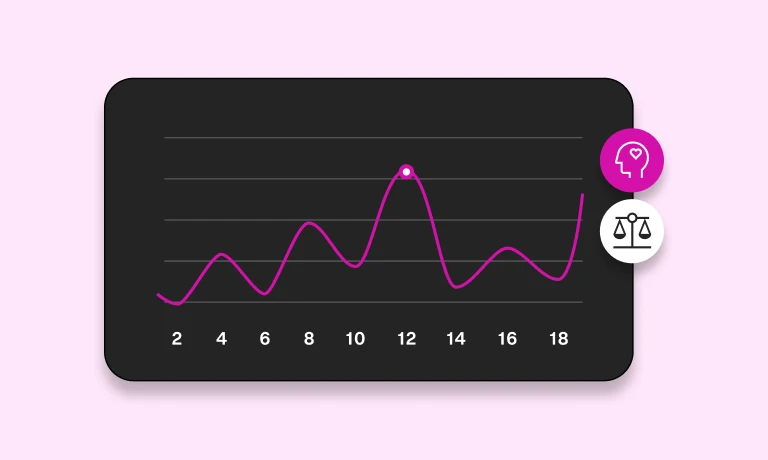A shift coordinator is essential in organizations with shift-based work, including hospitals, hotels, and manufacturing plants. Hiring someone qualified for this role begins with crafting an effective job description.
Unfortunately, this is tricky since you must accurately capture the hard and soft skills needed for the role while giving candidates a realistic understanding of the shift coordinator’s duties. Even seasoned HR professionals can struggle with this. And ineffective job descriptions can draw in unsuitable applicants who can potentially hinder productivity and create a negative work environment.
In this article, we explain how you can write a clearshift coordinator job description that includes all the essential skills and requirements for the shift coordinator role. We also provide a handy template to get you started.
Table of contents
- What is a shift coordinator?
- Key skills to look for in a shift coordinator
- How to write an effective shift coordinator job description
- Shift coordinator job description template
- 3 things to avoid when writing a job description for a shift coordinator
- Next steps: Attracting and assessing shift coordinator candidates
- FAQs
- Hire the best shift coordinators using TestGorilla
What is a shift coordinator?
A shift coordinator schedules employees’ shifts, ensuring that each shift is adequately staffed to meet the organization’s operational demands. They ensure smooth communication between management and frontline employees, boosting operational efficiency.
Beyond mere scheduling, shift coordinators play a crucial role in managing staff availability, handling time-off requests, and resolving any scheduling conflicts that arise.
In addition, their ability to adapt to dynamic environments and maintain harmony among team members is essential to the organization’s success.
Key skills to look for in a shift coordinator
Here are a few essential skills to look for in a shift coordinator.
Hard skills:
Proficiency in scheduling software: Mastery of digital scheduling tools for effectively organizing and adjusting shifts, managing time-off requests, and forecasting staffing needs
Understanding of labor laws: Knowledge of relevant labor regulations, including overtime rules and break requirements, for ensuring compliance and preventing legal issues
Data analysis and reporting: Ability to analyze staffing data, generate reports on shift patterns, and identify trends to inform decision-making and improve productivity
Soft skills:
Strong communication for coordinating between management and staff, clearly conveying scheduling changes, and addressing any concerns or requests
Leadership and teamwork for guiding teams through changes and fostering a collaborative work environment
Problem-solving abilities for resolving scheduling conflicts quickly, addressing unexpected staff shortages, and adapting to changes
Attention to detail for creating and managing schedules, monitoring staff attendance, and ensuring shifts are adequately covered to meet operational demands
Stress management for remaining calm under pressure – especially when dealing with last-minute changes or staffing emergencies
The best insights on HR and recruitment, delivered to your inbox.
Biweekly updates. No spam. Unsubscribe any time.
How to write an effective shift coordinator job description
Use these four best practices to write a compelling and accurate shift coordinator job description.
1. Detail crisis management expectations
Given the unpredictable nature of shift work, especially in industries like healthcare or hospitality, you must outline how a shift coordinator should handle sudden staff shortages, emergencies, or last-minute changes. This will give them a realistic understanding of the role.
Describe scenarios they might face and the level of independence they’ll have in decision-making. For instance, a healthcare company might say, “In the event of sudden absences, the coordinator is expected to promptly consult our on-call staff list, efficiently assess the skills and qualifications needed to fill the gap, and swiftly contact suitable replacements.”
2. Include points about flexibility and adaptability
The work environment for a shift coordinator can change rapidly. Highlight the need for candidates who are flexible with their availability and good at adjusting to the evolving needs of your business.
For example, you might say, “Ideal candidates will be able to adapt their management style to different scenarios and effectively handle unexpected changes in shift operations.”
3. Emphasize communication skills
Strong communication is vital to a shift coordinator’s role, ensuring shifts run smoothly and staff are well-informed. Your job description should specify the need for excellent verbal and written communication skills, including examples of how the shift coordinator will use these skills. This way, candidates with the communication abilities you need will apply.
For instance, a job description might say that the shift coordinator is “responsible for daily briefings to communicate shift objectives and updates.”
4. Highlight specific scheduling software proficiency
Shift coordinators must navigate scheduling software with ease to manage employee shifts. Clearly state the specific platforms your company uses and emphasize the importance of candidates having experience or a quick learning ability with these tools. This will draw in candidates with relevant experience or a willingness to learn.
For example, a company might say that “proficiency in Kronos for scheduling and timekeeping is preferred.”
Shift coordinator job description template
Here’s a job description template you can customize to fit your company and attract the best candidates.
Company introduction
Introduce your company, mention its services, and discuss your core values and missions. Detail your work culture and how a shift coordinator would impact it. Talk about where they’d fit in and how they can help your company run smoothly.
Benefits of working with [your company]
Mention the benefits for shift coordinators at your company. Focus on unique perks – like employee wellness programs, fitness centers (for on-site positions), and continuous learning opportunities.
Shift coordinator job brief
[Company name]
Job title: Shift Coordinator
Reports to: [For example, Operations Manager]
Position type: [Full-time or part-time]
Location: [For example, remote, hybrid, or on site (include address if applicable)]
Salary and benefits: [For example, competitive salary, health insurance plans, retirement benefits, and more]
Responsibilities and duties
Develop and manage employee schedules across multiple shifts.
Handle time-off requests, ensuring operational needs are met.
Resolve scheduling conflicts and manage last-minute changes efficiently.
Facilitate communication between staff and management to ensure clear understanding of shift objectives.
Monitor staff performance and attendance, reporting any issues to management.
Ensure compliance with company policies and regulatory requirements.
Assist in training new staff on scheduling systems and procedures.
Skills and qualifications
Required skills and experience
Understanding of shift planning and allocation and knowledge of labor laws
Proficiency in scheduling software such as [mention specific software your company uses]
Strong organizational and time-management skills [add job-specific details about how this applies at your company]
Excellent verbal and written communication skills and problem-solving skills
Preferred skills and experience
Proven experience in a shift coordination role, preferably within [industry type]
Degree in business administration or related field
Experience in crisis management and adapting to changing operational needs
Ability to work flexibly across various shifts, including nights, weekends, and holidays
Leadership skills with a focus on team motivation and engagement
3 things to avoid when writing a job description for a shift coordinator
Avoid these three pitfalls in your job description to attract qualified and prepared candidates.
1. Vagueness about shift hours
A common misstep is not being explicit about the operational hours the shift coordinator must cover. For instance, simply stating “flexible hours required” without specifying that the role includes night shifts, weekends, and public holidays can lead to confusion and misaligned expectations.
Clarify whether the position involves a rotating shift pattern, fixed night shifts, or availability for emergency shift coverage. This specificity helps attract candidates who are genuinely prepared and willing to work under those conditions.
2. Underestimating the importance of interpersonal skills
Job descriptions that overlook soft skills can draw in ill-suited applicants who can’t interact well with your team. Shift coordinators must possess strong interpersonal skills to communicate effectively with team members across different shifts and departments. They also need leadership skills to motivate staff and manage any issues.
Specify the need for candidates who demonstrate empathy, conflict resolution, and the ability to inspire and maintain high team morale.
3. Omitting industry-specific challenges
Each industry presents unique challenges for shift coordinators – including compliance challenges. For example, in healthcare, staffing requirements revolve around patient care standards, emergencies, and healthcare regulations. In manufacturing, production timelines, machinery maintenance schedules, and safety regulations define staffing.
Not detailing these requirements can lead you to attract candidates who can’t keep up with the role’s unique challenges.
Next steps: Attracting and assessing shift coordinator candidates
After you write and post your job description and draw in applicants, you can move on to candidate assessments. Online talent assessments are the best method to do this.
TestGorilla is a talent assessment platform offering hundreds of tests for all kinds of roles. You can use these four role-specific tests to assess applicants for the shift coordinator position:
Shift coordination test: Evaluates candidates’ abilities in shift planning, allocation, communication, and team management
Communication skills test: Tests written and verbal communication skills, non-verbal cues, and active listening
Problem-solving test: Covers areas like creating and adjusting schedules, analyzing information to make logical decisions, and responding to complex situations
Time management test: Tests how candidates manage their time and prioritize tasks in workplace scenarios
To get a better idea of candidates’ soft skills, combine the above tests with personality and culture assessments.
You can also create personalized assessments tailored for your organization by merging up to five tests into a single assessment and adding custom questions to each test.
FAQs
What is an hourly shift coordinator?
An hourly shift coordinator organizes and oversees employees’ work schedules. The term “hourly” usually means that the coordinator is compensated based on the hours they work, often reflecting the fluctuating nature of their scheduling responsibilities.
However, the term “hourly” might sometimes indicate that the coordinator oversees hourly work schedules.
What is the salary of a shift coordinator?
The estimated average base salary for a shift coordinator in the US as of February 2024 is $17.88 per hour according to Indeed. This can vary based on location, company, and other factors.
Hire the best shift coordinators using TestGorilla
Shift coordinators are critical for maintaining operational continuity, optimizing staff allocation, and contributing to employee satisfaction. A detailed, clear job description is the vital first step to hiring qualified shift coordinators.
Once you’ve drafted your job description, choose tests from TestGorilla’s library of hundreds of tests to assess your candidates’ skills, personality traits, and more. You can use our platform for data-driven, bias-free hiring.
Discover TestGorilla’s features and benefits by watching a live demo or signing up for a free account today!
You've scrolled this far
Why not try TestGorilla for free, and see what happens when you put skills first.


















